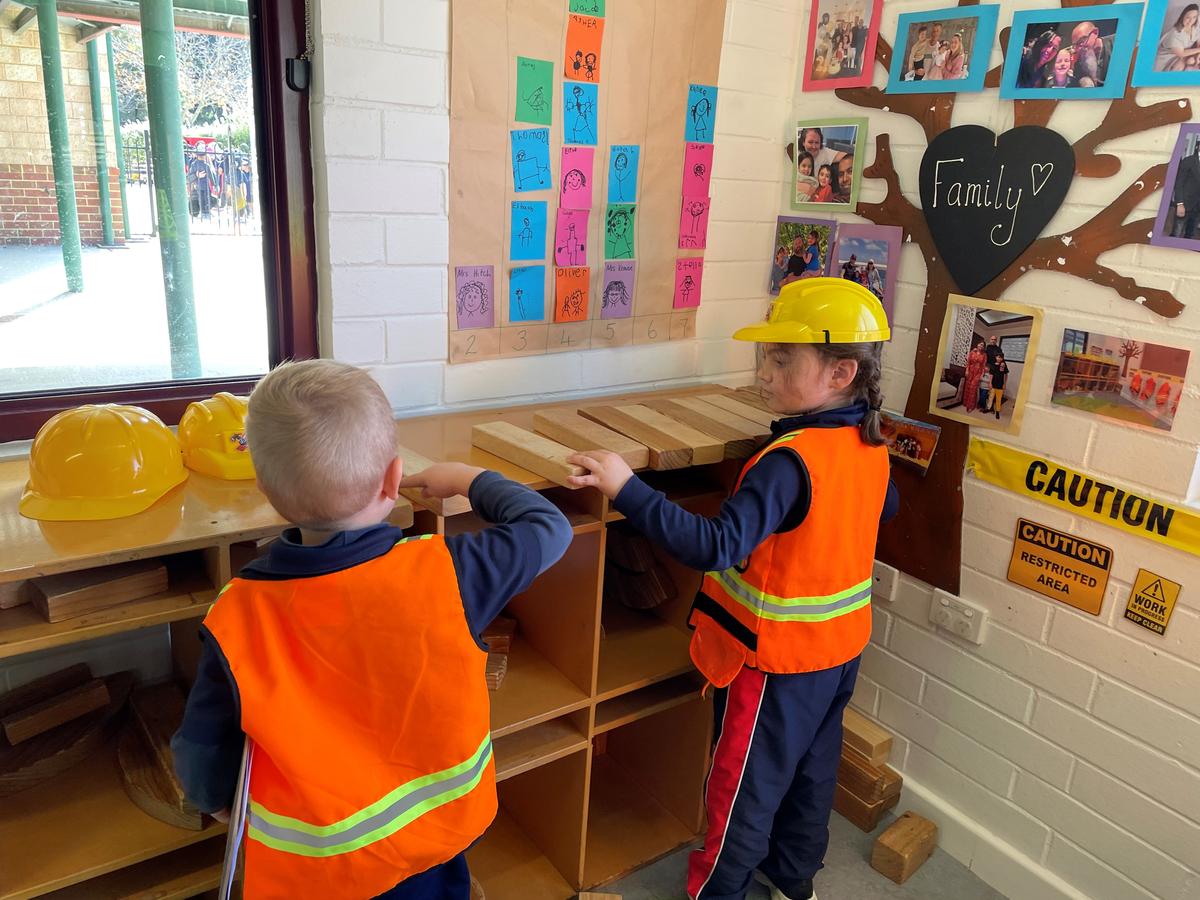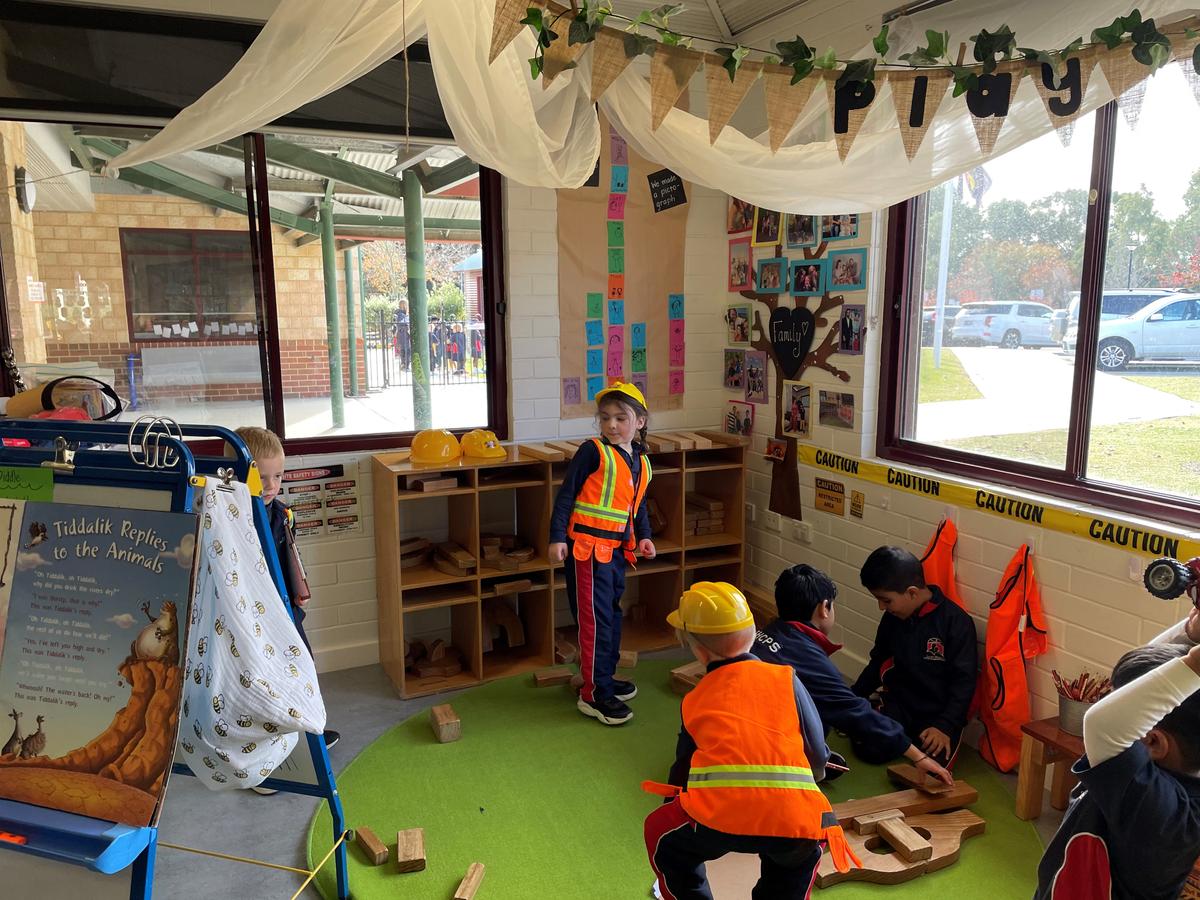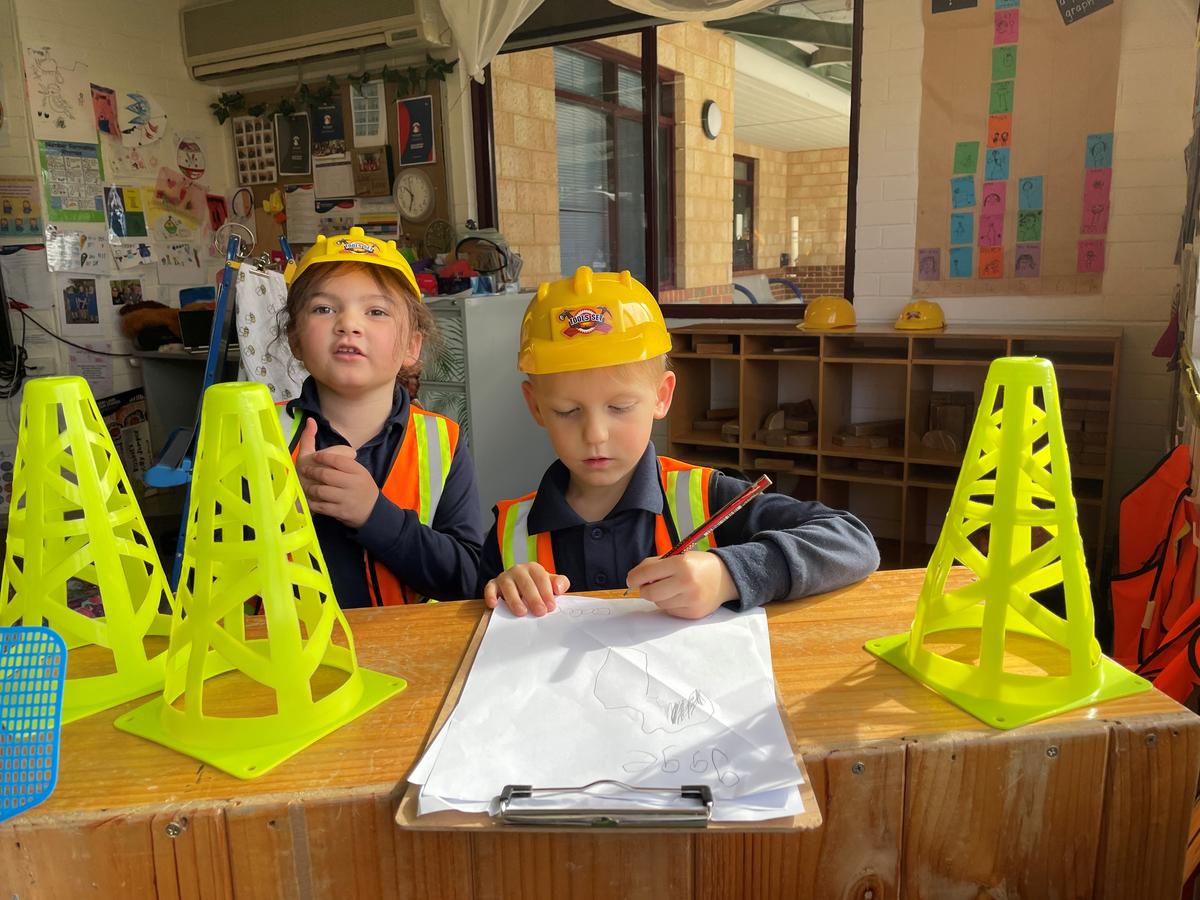Early Childhood News

Have you ever wondered why every Early Childhood classroom has blocks? Whether it's stacking colorful blocks, constructing intricate structures, or creating imaginative worlds, this simple yet powerful activity holds many benefits for children.
Enhancing Motor Skills: Building with blocks requires the use of fine motor skills, encouraging children to grasp, manipulate, and position the blocks with precision. As they pick up, stack, and arrange the blocks, their hand-eye coordination and dexterity improve, setting the stage for future tasks like writing, tying shoelaces, and other intricate tasks.
Fostering Creativity and Imagination: Blocks are an open-ended toy that stimulates imaginative thinking. When children engage in building, they have the freedom to explore endless possibilities. They can transform blocks into anything their minds can envision an ancient castle, a bustling city, or even a spaceship to explore the cosmos. This creative freedom nurtures their imagination and problem-solving skills, as they learn to think critically, plan, and execute their ideas.
Developing Spatial Awareness: Building with blocks helps children develop spatial awareness - the understanding of shapes, sizes, and how objects fit together in space. Through trial and error, children learn concepts like balance, stability, and gravity. They discover the principles of cause and effect, observing the consequences of their actions when a structure collapses or stands tall. These experiences lay the groundwork for understanding spatial relationships, geometry, and even basic physics later in life.
Encouraging Social and Emotional Growth: Building with blocks is often a collaborative activity, providing an excellent opportunity for children to engage in social interaction. Whether they build with siblings, friends, or parents, it encourages teamwork, communication, and negotiation skills. As they share ideas, discuss plans, and solve problems together, they learn to work as part of a team and develop empathy, patience, and cooperation.
Promoting Cognitive Development: The act of building stimulates cognitive abilities in children. They engage in problem-solving, logical thinking, and decision-making as they figure out how to make their ideas come to life. Building with blocks also introduces basic mathematical concepts such as counting, sorting, and comparing sizes and shapes. Additionally, as children engage in building, they improve their focus, concentration, and memory skills.



